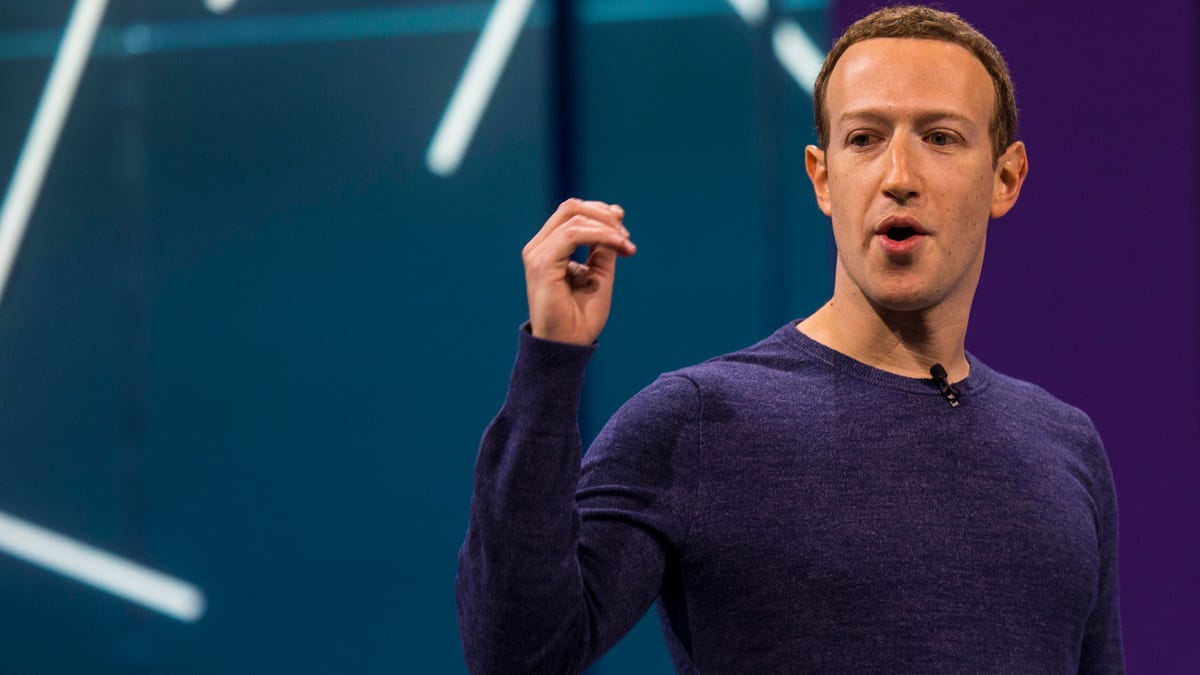Facebook's newest problem: Business is slowing
Mark Zuckerberg's got another headache.

Facebook CEO Mark Zuckerberg
Facebook faces a torrent of scandals that just won't go away. Now CEO Mark Zuckerberg has another item to worry about: His social network isn't growing as fast as expected.
Since the beginning of the year, Facebook has weathered a massive data privacy scandal and the company has been vilified for allowing fake news to remain in its news feed feature. Zuckerberg was summoned to Capitol Hill to answer questions about the social network's behavior.
It didn't get better on Wednesday, when executives at the world's biggest social network said the company's investments in new products, like its much-touted Stories format, had weighed on revenue growth. Worse, revenue growth will slip by "high single-digit" percentages over the next two quarters, Facebook CFO David Wehner told investors during a call.
The slowdown was clearly evident in Facebook's results, which were a rare miss for a company that solidly and consistently delivers. Facebook tallied $13.23 billion in sales, missing analyst estimates of $13.36 billion in the three months ended on June 30. The company did, however, beat earnings per share forecasts, notching $1.74 against the expected $1.72.
Growth in both daily and monthly average users, measures of how often members visit Facebook, missed analyst estimates, perhaps reflecting growing unease with the platform and what's on it.
Investors punished Facebook stock, sending the company's shares nearly 25 percent lower in after-hours trading. The plunge zapped roughly $150 billion from Facebook's market capitalization, the value of all its shares added together. Zuckerberg's personal fortune dropped by $16.8 billion, pushing him from the world's third-richest person to the sixth, according to Bloomberg.
Zuckerberg said the company's investments in security would affect its performance. Facebook has launched initiatives on advertising transparency and has implemented AI to sniff out fake news. It's also given users more control over privacy, which can hit revenue because advertising is less-targeted and therefore potentially less valuable.
"We're starting to see that this quarter," Zuckerberg said.
Gene Munster, an analyst at Loup Ventures, said Facebook's earnings performance was resetting the company's growth profile. "We're entering a new period of the Facebook story," he wrote in a note.
Zuckerberg and COO Sheryl Sandberg tried to put a good face on what was clearly an ugly quarter. But the earnings miss comes as the social network stumbles through the roughest patch in its 14-year history as it seemingly confronts a new controversy every few days. Just this week, Facebook caught flak for letting Alex Jones, the conspiracy theorist behind InfoWars, make horrible, unsubstantiated accusations and an apparent threat against Special Counsel Robert Mueller in a webcast Monday.
Zuckerberg has only made things worse when he's tried to explain Facebook's reasoning for allowing fake news to remain on the social network. Last week, he sparked outrage after saying the company wouldn't ban content from Holocaust deniers because "I don't think that they're intentionally getting it wrong."
In the background, Facebook continues to feel the fallout from the Cambridge Analytica scandal, which involved data from 87 million users that was harvested by the UK-based digital consultancy. And US lawmakers continue to scrutinize Facebook over election meddling by Russian agents during the 2016 campaign.
The scandals took their toll on users. In Europe, one of Facebook's most important markets, daily active users dropped to 279 million, down from 282 million. During the call, Zuckerberg said monthly average users had also fallen in the region. Some of that could be a result of the EU's General Data Protection Regulation, or GDPR, which went into effect in May and gives Europeans more control over their personal data. Some of it could be disaffection with Facebook itself.
"GDPR was an important moment for our industry," Zuckerberg said, acknowledging the decline. "Looking ahead, we will continue to invest heavily in security and privacy. This is our responsibility to keep people safe."
The performance in the US and Canada wasn't as bad, but it suggested the company had already gotten the bulk of users in those countries to sign up. Monthly user figures stood flat at 241 million.
It's unclear whether all these issues are scaring off advertisers, because Facebook is still a good way to reach more than 2 billion consumers. But the company's results Wednesday suggested users could be having second thoughts.
First published July 25, 1:38 p.m. PT.
Update, 3:27 p.m.: Adds information from Facebook's conference call.
Cambridge Analytica: Everything you need to know about Facebook's data mining scandal.
iHate: CNET looks at how intolerance is taking over the internet.

